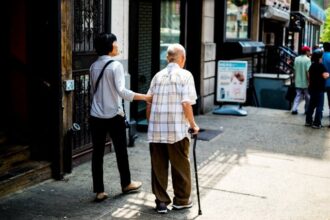Physical activity has long been recognised as a key component of overall health and wellbeing. Still, new research from the University of Georgia (UGA) sheds light on a more specific benefit—its potential to slow cognitive decline. Conducted by the College of Public Health at the University of Georgia, the study examined long-term data from over 13,000 participants aged 50 and older. The findings reveal that individuals who maintained consistent levels of physical activity over time experienced significantly slower rates of cognitive deterioration, suggesting that the effects of exercise extend well beyond the physical body and into the preservation of mental function.
Dr Suhang Song, assistant professor in the Department of Health Policy and Management at UGA, led the study. She and her team used data from the Health and Retirement Study, a nationally representative longitudinal survey that followed participants for 16 years. Respondents regularly reported how often they engaged in physical activity and the intensity of those activities. From vigorous forms such as running and jogging to more moderate efforts like gardening or dancing, and even lighter tasks like vacuuming or home repairs, all levels of activity were assessed. The team found that greater frequency and longer duration of physical engagement correlated with slower rates of cognitive decline.
One of the most compelling aspects of the study was the discovery that even modest increases in physical activity made a measurable difference. For example, individuals who shifted from engaging in vigorous exercise a few times per month to once per week showed a noticeable slowing in the decline of their cognitive abilities. Likewise, those who increased moderate activity from once a week to several times a week benefited similarly. The research did not measure exercise in terms of duration per session. Instead, it focused on the consistency and pattern of activity over time, highlighting the importance of regular movement as a lifestyle habit.
Dr Song emphasised that although the improvements might appear incremental, they accumulate significantly over the years. “The improvement of the decline rate may seem modest, but it builds up over time,” she explained. “If this slower decline continues, it could potentially delay the onset of dementia by many years.” Such a delay could have a profound impact on individuals and their families, allowing them to enjoy more years of independent living and preserve their quality of life. The cumulative nature of the benefit means that starting or maintaining physical activity—even at a low level—could yield significant long-term advantages.
What sets this study apart from previous research is its focus on the duration and regularity of activity rather than isolated snapshots of physical engagement. While previous studies have established the link between exercise and brain health, UGA’s contribution lies in its emphasis on the role of sustained, long-term commitment to physical activity. The researchers advocate that promoting regular exercise should be an integral part of dementia prevention strategies, both in clinical practice and in public health policy. Supporting older adults in establishing and maintaining routines could be key to protecting cognitive function into advanced age.
Ultimately, Dr Song’s message is a clear and encouraging one: keep moving, and do so consistently. Whether through high-intensity workouts or gentle, everyday tasks, the act of staying active offers meaningful protection for the brain. The research highlights the importance of incorporating physical activity into daily life as a preventive health measure. As policymakers, healthcare providers, and individuals look for ways to mitigate the growing burden of cognitive decline and dementia, encouraging consistent physical activity may be one of the most effective, accessible, and sustainable approaches available.
More information: Suhang Song et al, Long-term cumulative physical activity associated with less cognitive decline: Evidence from a 16-year cohort study, The Journal of Prevention of Alzheimer’s Disease. DOI: 10.1016/j.tjpad.2025.100194
Journal information: The Journal of Prevention of Alzheimer’s Disease Provided by University of Georgia








